Featured
Award-Winning Ideas from the APS Virtual Poster Showcase

Every year at the APS convention since 1991, a highlight has been the poster sessions, where hundreds of undergraduate and graduate students studying psychological science (as well as scientists at all levels) present their research and engage in discussions with interested colleagues. With COVID-19 forcing the cancellation of APS 2020, these interactions have gone online in the form of the first APS Virtual Poster Showcase, open to registered attendees from June 1 through September 1. Registration is free.
In the following pages, you’ll learn about the motivations and personal stories behind many of the best posters accepted to APS 2020, as selected by reviewers for the four categories of awards. Besides briefly describing the research in the winning posters, we asked the presenting authors three simple questions about their work. Their responses, lightly edited for publication, follow. The summaries are drawn from the posters themselves, edited for brevity.
Student Research Award | RISE Award | Psychological Science and Entrepreneurship Poster Award | NIDCR “Building Bridges” APS Convention Travel Award
Student Research Award
Offered through the APS Student Caucus (APSSC), the Student Research Award recognizes excellence in research by APS Student Affiliate Members, including undergraduate students, graduate students, and students transitioning between their undergraduate and graduate education, representing any field or area of psychology. A panel of graduate and undergraduate students selected the four winners for 2020, who also received a monetary award of $300.
Learn more about the Student Research Award, including past winners.
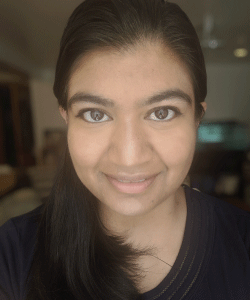
Reinterpreting a Popular Measure: What Is the Balloon Analogue Risk Task Measuring?
Natasha Chaku and Lindsay Till Hoyt (Fordham University)
The Balloon Analogue Risk Task (BART) is a computer-based measure of risk taking in which participants inflate a series of balloons. Points are rewarded for each “pump.” However, at any point during each trial the balloon may explode, and participants lose all accumulated points. Chaku and Hoyt found that the BART may be a better measure of adaptive decision-making than risk taking.
What drew you to this research?
I’m interested in understanding the ecological validity of various tasks we use to measure real-world behavior. The Balloon Analogue Risk Task (BART) is often used as a valid proxy for risk taking, but using averages that collapse data across person and time may misrepresent inter- and intra-individual variability that contextualizes the cognitive processes related to risk taking.
What did the research reveal that you didn’t already know?
There are a variety of new methods available to evaluate performance on the BART that may be helpful when assessing individual differences in risk-taking behaviors. In particular, intra-individual measures of BART performance show promising predictive validity. As the BART continues to be utilized in psychological research, we hope that these preliminary findings will instigate further research and discussion on the application and use of this popular measure.
What are your plans going forward?
I just graduated with my doctorate in applied developmental psychology from Fordham University, and plan to start a postdoctoral fellowship in developmental science at the University of Michigan this summer. I plan to continue studying individual differences in cognition and how we can best utilize task-based measures to explain real-world behavior, particularly in adolescence.
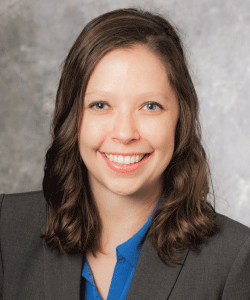
Caitlin Rancher, Akihito Kamata, Renee McDonald, Ernest N. Jouriles (Southern Methodist University), and Mindy Jackson (Dallas Children’s Advocacy Center)
Self-blame appraisal, the belief that one is responsible for or caused an event, predicts adolescent adjustment problems following sexual abuse. Most empirical work does not distinguish between abuse-specific self-blame and global self-blame and may overlook important differences relevant to outcomes and interventions following sexual abuse. Rancher and colleagues found that abuse-specific and global self-blame are correlated, but conceptually distinct.
What drew you to this research?
My research seeks to understand and intervene on children’s adjustment problems following violence exposure. In this study, we examined the factor structure of self-blame appraisals, beliefs that one is responsible or caused an event, among adolescents who have been sexually abused. I was drawn to this research as a myriad of empirical literature suggests self-blame appraisals are an important predictor of adjustment problems following sexual abuse; however, I was surprised to find the definition of self-blame varies widely. Many examine self-blame specific to the abuse itself (e.g., I caused the abuse to happen), whereas others examine more global self-blame appraisals (e.g., I always cause bad things to happen). We investigated the factor structure as a critical first step to enhance scientific and clinical understanding of self-blame appraisals for sexual abuse.
What did the research reveal that you didn’t already know?
This research revealed that self-blame specific to the sexual abuse and global self-blame are conceptually distinct. Despite the theorized distinction between these two types of appraisals, this had yet to be empirically tested among a large sample of adolescents who have been sexually abused. Broadly, this revealed to me the importance of critically evaluating measurement of established phenomenon. It also suggests further research and clinical work is needed to understand how these types of self-blame may differentially relate to adolescent functioning following sexual abuse.
What are your plans going forward?
I am preparing to defend my dissertation, an original data collection at a children’s advocacy center, evaluating a brief parenting program among nonoffending caregivers. In the next few months, I will be moving to Charleston, South Carolina, to begin my clinical internship at the Medical University of South Carolina. Long term, I am looking forward to continuing a clinical research career with underserved, diverse youth who have experienced trauma or are at risk for future victimization.

The Emotion-Induced Belief-Amplification Effect
Madalina Vlasceanu and Alin I. Coman (Princeton University)
To explore the effect that images have on belief endorsement, Vlasceanu and Coman tested whether statements accompanied by emotionally arousing images become more or less believable than the same statements when they are accompanied by neutral images or by no images. The researchers found that emotional images increased statement believability.
What drew you to this research?
I was drawn to this research area when I realized the extent of the consequences misinformation has for our planet, for our health, our interactions with each other, and all other areas of our lives. Since misinformation spread is increasing with the advances of technology, it seemed imperative to start thinking about and exploring ways of addressing this problem.
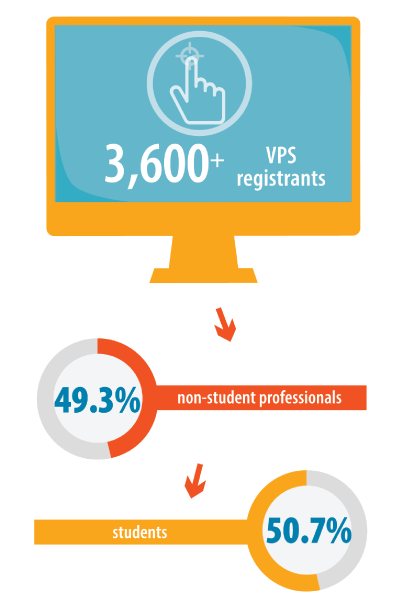
What did the research reveal to you that you didn’t already know?
In my research program, I leverage the dynamic attribute of beliefs in exploring sociocognitive strategies that can be used at the individual and at the collective level to reduce misinformation and empower the endorsement of facts. In this particular project, I found that emotionally arousing images can be used to increase people’s belief in facts. Such strategies add to the tools policymakers and organizations dedicated to diminishing misinformation can use in their campaigns.
What are your plans going forward?
As I am finalizing my dissertation on this critical subject, I hope to continue expanding this research program, especially in more applied settings. My long-term goal is to bridge the gap between controlled lab experiments like this one and real-world interventions, an essential translation I believe has urgent potential to amplify psychological science for social good.
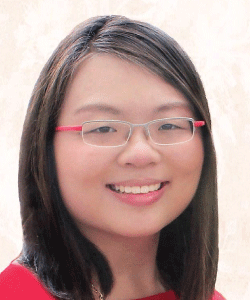
The Derring Effect: Deliberate Errors Enhance Learning
Sarah Shi Hui Wong and Stephen Wee Hun Lim (National University of Singapore)
Errors have traditionally been viewed as aversive events or, at best, serendipitous accidents. Challenging these views, Wong and Lim tested the counterintuitive learning benefits of deliberately responding incorrectly. The researchers found that guiding learners to deliberately err even when they knew the correct answers enhanced learning—a phenomenon they term the “derring effect.”
What drew you to this research?
Once, I made a costly error on a high-stakes exam. While I was berating myself for it, I also realized that I would (hopefully) never make the same error again. Gratefully, that error did not ruin my transcript, but that single experience did probably fuse with many other similar instances in my life to illuminate a flash of insight: Why not practice making errors in safe learning environments, so that we truly succeed when it matters most? This sparked the counterintuitive idea of deliberate erring in low-stakes contexts to unleash the potential of errors in education. I have my statistics lecturer to thank for what has turned out to be an “aha!” moment!
What did the research reveal that you didn’t already know?
By deliberately embracing our errors and wisely placing ourselves in the way of being wrong, we can overcome and rise stronger. As psychologists, we routinely acquaint with fascinating examples of errors in human cognition that may serve fundamentally adaptive purposes. We are all fallible. Yet, throughout history, we have constantly striven to deny our ordinary, imperfect, and universal humanity. Thus, it is empowering to know that deliberately committing and correcting errors—the very events that we so often seek to avoid—can in fact benefit us. This research can potentially transform the way in which we approach education in practice and policy.
What are your plans going forward?
In the immediate future, I will be preoccupied with the current pipeline of ongoing projects that extend my work on the derring effect. On the longer runway, I expect to further develop my purpose and identity as a scientist, pursuing questions and translating findings that will positively impact our societies. For instance, what are the ultimate goals of learning and education in and beyond the classroom, how can we effectively achieve those goals, and what would these achievements mean for humanity? Along the way, I look forward to encountering and partnering with many like-minded individuals who will embark on this lifelong journey of inquiry together.
RISE Award
Offered through the APS Student Caucus (APSSC), the RISE (Researching Injustice and Social Equality) Award seeks to cultivate psychological science research in fields related to socially and economically underrepresented populations, and to recognize outstanding student researchers from diverse racial, ethnic, geographic, and cultural backgrounds, as well as other underrepresented groups. It is open to current APS Student Affiliates, including undergraduate students, graduate students, and students transitioning between their undergraduate and graduate education. A panel of graduate and undergraduate students selected the 8 winners, who also received a monetary award of $300.
Learn more about the RISE Award, and see past winners.

Oppressed but Privileged: Investigating White LGBQ Students’ Social and Racial Attitudes
Yujia Bai, Makaila J. Lozano, Anna R. Wruck and Emily J. Blevins (University of Illinois at Urbana Champaign)
Systems of oppression are interlocking and synergistic. As a result, experiences with one social identity are shaped by all other social identities—both privileged and marginalized. Bai and colleagues investigated how having a marginalized identity influences empathy toward others experiencing marginalization. The researchers found that White LGBQ students were lower in social dominance and modern racism, and higher in their awareness of White privilege, than White heterosexual students.
What drew you to this research?
The ethnic backgrounds of the four of us presenters are quite diverse, and our past work in the lab involves what individuals think and feel about race-related topics. This is the origin of our interests. Anecdotally we had observed greater racial awareness among our LGBQ friends and wanted to explore that empirically.
What did the research reveal that you didn’t already know?
Past research discusses LGBQ individuals as a whole but doesn’t really touch on White LGBQ college students in particular. Given college is this unique time when students are being exposed to a diversity of identities and ideas, we wanted to focus on that developmental period and really situate the study within the population that is most proximate to us. While our results aligned with what we expected (i.e., greater racial awareness and lower prejudicial attitudes among White LGBQ students compared to White straight students), it helped to confirm that all identities intersect and inform one another—both privileged and marginalized.
What are your plans going forward?
I plan to pursue a PhD degree in psychology in the intersections of social psychology and developmental psychology, focusing on the origins of individuals’ racial identities and moral cognition, and continue conducting research in the future. Anna and Makaila plan to specialize in clinical psychology in graduate school, and Emily is a PhD student in clinical psychology.
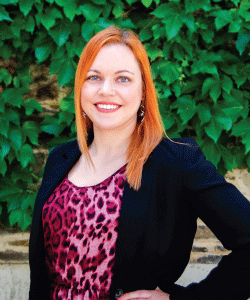
Body Image Disturbance and Sexual Orientation: An Updated Systematic Review and Meta-Analysis
Sophie Dahlenburg, David H. Gleaves, Amanda D. Hutchinson, and Daniel G. Coro (University of South Australia)
Body image disturbance (BID) has been associated with depression, low self-esteem, and the development of eating disorders. Researchers are divided as to how BID affects individuals of differing genders and sexual orientations. Dahlenburg and colleagues found that lesbian women reported experiencing less BID than heterosexual women, but more than gay men, with heterosexual men reporting the least BID.
What drew you to this research?
Body image and eating disorders have been a research interest of mine since the third year of my undergraduate degree. I conducted my honors research on eating disorders and wanted to continue the area into my PhD. I originally wanted to focus around male body image in the context of exercise and steroid use, but I realized that research around lesbian women and body image/eating disorders is drastically lacking compared to heterosexual women. I wanted to be an advocate for lesbian women and help to uncover the nuances associated with their body image. There’s still a lot we don’t know, and I made it my goal to contribute something to the literature. The inclusion of male comparisons in the meta-analysis was to stay in line with what the previous meta-analysis did, and also add more information to that part of the literature.
What did the research reveal to you that you didn’t already know?
The differences between lesbian and heterosexual women weren’t as large as I was first expecting, but looking at the current existing theories, those results came as little surprise. What really became clear is that issues around body image are not straightforward, and assessing body image is not a one-size-fits-all approach. There are many facets to body image (which I already knew), but I was quite surprised at the various ways of measuring it. It makes me wonder what new developments will come about around assessment and measurement over the next decade or so.
What are your plans going forward?
I have about 12 months left until I complete my PhD, and I would love to secure a postdoc in the same field as I’m currently working in. Continuing this research and looking at bisexual or transgender individuals would be, I think, an important contribution to the literature. I would love to also attend a few international conferences (when travel is allowed again!) to see first-hand what other researchers are doing, and learn as much as I can!
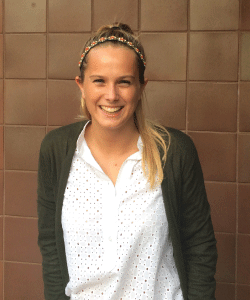
Contextualizing Intrusiveness in Parents of Toddlers: The Moderating Role of Race
Maire Claire Diemer, Monica Sofia Treviño, and Emily D. Gerstein (University of Missouri-St. Louis)
Intrusive parenting—which promotes family enmeshment and parental control—has traditionally been understood as poor parenting, but recent research indicates that White, Western judgments of parenting cannot be universally applied to development. Diemer and colleagues found that intrusive parenting was associated with more behavior problems and worse emotion regulation skills in White toddlers but was not associated with children’s behavior in African-American families.
What drew you to this research?
While working on my master’s thesis, I became surprised and interested in the literature regarding racial and ethnic background and parenting. The debate between whether differences reflect accurate, objective observations, biased protocols and scoring, or are the result of different cultural norms (and therefore might support equally positive developmental growth) fascinated me. I wanted to explore more about how race might moderate the impact of parenting on child development.
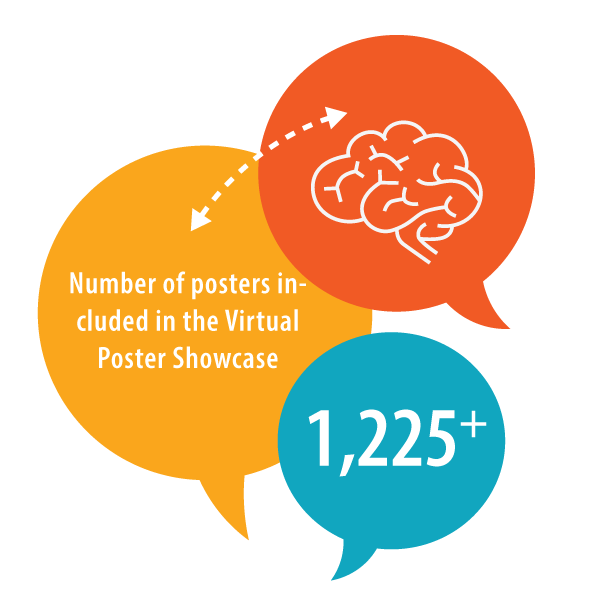
What did the research reveal that you didn’t already know?
This investigation showed that children from White families showed more behavior problems at age 3 when more intrusive parenting was observed at age 2. However, African-American children did not show this pattern, with behavior problems staying relatively consistent, even when there were high levels of intrusive parenting at age 2. This suggests that the cultural context of families makes a difference in how parenting is experienced and the child development outcomes it precedes.
What are your plans going forward?
I plan to continue my focus on early childhood development and the influence of culture and atypical development. A future project I am working on investigates the role of intrusive parenting in families of children with developmental delays. I am also curious to investigate further what role unconscious bias has to play in the way parenting is coded in family research.
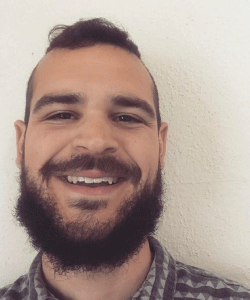
Information Spotlighting in Americans’ Decisions Surrounding Refugee Resettlement Policy
Alexander Garinther (University of Oregon), Marcus Mayorga, Paul Slovic (Decision Research), and Daniel Västfjäll (Linköping University, Sweden)
Existing preferences related to issues such as refugee resettlement policies may influence individuals’ choices to consume content that either confirms or challenges their attitudes. Garinther and colleagues found that those who opposed resettlement policies were more likely to consider security-related information in their decision-making process. Those who supported refugee resettlement, on the other hand, indicated that both security and humanitarian information were relevant to their decision.
What drew you to this research?
My interest in refugee studies stems from a family migration story (Armenia to the U.S., early 20th century). When I came to the University of Oregon in 2015, I was fortunate to link up with a great group of people who care about humanitarian issues and specifically refugee assistance. My coauthors are a part of Decision Research, a nonprofit in Eugene, Oregon, that has been doing this kind of work for many years. They host a conference every summer where people come from all over the world to study humanitarian, altruism-driven topics and their relevant psychological mechanisms. It’s known as “Compassion Week.”
What did the research reveal that you didn’t already know?
While we had a hunch that people would display attitude-confirming behavior—and in particular, that participants who opposed a refugee resettlement policy (“rejecters”) would focus heavily on security-related information—we also thought we might be able to influence these decisions to some degree and even “convert” some people to the other side. We tried to do this by adding an introspection task to Study 2; the task asked participants to think first about their values and what they “should” be valuing when considering this policy proposal. We expected this might move some rejectors toward accepting the refugee resettlement policy, but it didn’t. We were bit surprised at how difficult it was to change people’s minds.
What are your plans going forward?
I have been focusing my attention on science communication. The website arithmeticofcompassion.org promotes the kind of humanitarian research featured here and offers practical insights into issues of empathy and apathy, how we respond (and don’t respond) to humanitarian crises, the psychological processes involved, and so on. Usefulscience.org and appliedsciencelive.com are two other platforms I am involved with that do a great job of highlighting important research from psychology and beyond.
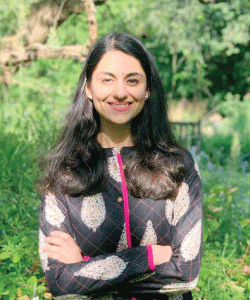
Sakshi Ghai (University of Cambridge, England), Cristina Bicchieri, Peter McNally, and Raj Patel (University of Pennsylvania)
The Swachh Bharat, or Clean India, Mission against open defecation is considered to be one of the largest behavior-change campaigns in the world. Ghai and colleagues found that trendsetters who helped facilitate this change exhibited high reflective autonomy, low risk aversion, high perceived self-efficacy, and commitment, allowing them to influence others at all levels of society.
What drew you to this research?
Growing up in semi-urban and small towns across India, I witnessed first-hand the social evils of open defecation. But it wasn’t until my master’s of behavioral and decision sciences at the University of Pennsylvania that I began to reflect on the role of social norms in understanding India’s persistent sanitation problem. The exposure to behavioral sciences provided me the right tools to start exploring some of the deeply entrenched social problems I had seen growing up.
Pioneering work on social norms by Professor Cristina Bicchieri, the founding director of MBDS and the Center for Social Norms and Behavioral Dynamics, has been very inspiring. Her mentorship has been instrumental in shaping my passion for applied research. The Center’s extensive work in the Global South and particularly studying sanitation in India since 2016 led them to spearhead this research in collaboration with UNICEF India. I am grateful she took a chance on me and I had the opportunity to contribute to this project. Further, given the Indian government’s public commitment to eradicate open defecation by Mahatma Gandhi’s 150th birthday on October 2, 2019, I thought this study served as a timely opportunity to understand the role of leaders to accomplish large-scale behavioral change.
What did the research reveal that you didn’t already know?
The team and I traveled across India and conducted qualitative interviews with key individuals. I was surprised by the fact that trendsetters emerged at all levels of social hierarchies. Our sample included top government leaders, business leaders, Bollywood celebrities, spiritual leaders, NGO heads, international development leaders [as well as] villagers and junior government officials—ordinary people working at the grassroots level. On a personal front, the brief exposure to the field was transformative. I had possibly the biggest aha moment of my life such that it convinced me that I wanted to do lab-in-the-field studies. It changed the course of my PhD aspirations and instead of pursuing my original research plan, I decided to shift gears to study behavior change in non-WEIRD (beyond the Western, educated, industrialized, rich, and democratic) contexts. As a grad student, I am cognizant that pursuing this line of research will not be without its challenges. But this research gave me courage and helped me align my professional goals to work on some of most wicked social issues in India.
What are your plans going forward?
I am finishing my first year of a PhD in psychology at the Body, Mind and Behaviour Lab at the University of Cambridge. I am very interested in studying how we can apply psychological insights to create enduring behavior change in resource-deprived communities. I am looking forward to spending this summer interning at the World Bank’s Mind, Behavior, and Development Unit (eMBeD) Behavioral Science Team. Later in the year, I plan to work with Ashoka University’s Center for Social and Behavior Changein New Delhi, set up by a Bill & Melinda Gates Foundation grant. Both these opportunities will enable me to study how psychological interventions can improve life outcomes of those in developing countries. However, I do realize that there will be new barriers in doing field work in the post COVID-19 world. Yet I remain hopeful about working on applied social problems and bringing together diverse samples. My dream is to blend both basic and applied research and extend its scope beyond India to one day reach the Global South.
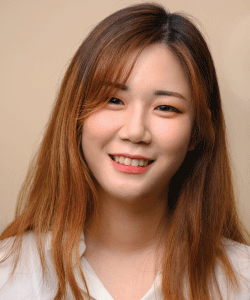
How to Take Responsibilities—Whether to Resign or to Resolve
Min Hye Kang and Jinkyung Na (Sogang University, South Korea)
Research shows that individuals from Eastern cultural backgrounds tend to think more holistically, taking context and other external factors into account when explaining a person’s behavior, while those from Western cultures tend to be more analytical, focusing on a person’s internal disposition. These differing perspectives may also influence preferences for people taking responsibility for institutional wrongdoing. Kang and Na found that while Asian-Americans were more likely to support an individual trying to resolve the institutional wrongdoing, European-Americans were more likely to support having that individual resign—but only when the individual admitted to doing wrong.
What drew you to this research?
Cultural psychology has long been my major research interest, most likely because I have lived in three different countries. I have been immersed in diverse cultures, and everyday life events gave me inspirations from time to time. Once I was reading a Korean online newspaper on a college official’s resignation and noticed a cultural difference between East Asian and European/American cultures in judging someone who has done wrong in a high position at an institution, and so I looked up other news articles with similar contexts. Most comments in Korean news article said instant resignation is “absolutely irresponsible” and suggested it is “thoughtless of people to leave the mess up to somebody else.” It appeared to me that East Asians criticize more when immediate resignation took place. I took this idea to my advisor and after a discussion, we speculated that thinking styles may be a contributor to the cultural difference in how a wrongdoer should take responsibilities for their actions. We found this topic relevant both relevant to real life and fun to investigate because so many similar incidents are reported in the media.
What did the research reveal that you didn’t already know?
I learned that there is no absolute standard or pathway in the responsibility judgment process because the effect of the perceiver’s cultural perspective varied with the actor’s attitude toward their own action. I learned this through Study 2 of my research, which gave me quite a challenge. Study 1 aimed to demonstrate a cultural difference between preferred means of taking responsibility when someone’s faults are found in an institution—particularly that those from an Eastern cultural background would expect a resolution while Western cultural background would demand a prompt resignation. The results supported the predictions, but then I became curious as to whether the difference could be minimized or eliminated under a particular condition. I have contemplated on the specific characteristics of holistic and analytic thinking styles because culture’s effect was mediated by the degree of holism in Study 1. It led to the deduction that the actor’s admittance or denial of the charges may affect analytic thinkers’ behavior attribution. Following this idea, Study 2 examined an interaction effect of culture and the actor’s admittance/denial of the charges. The results were that Western culture prefers resignation more when charges are admitted than when denied, but Eastern culture maintains the same judgment across the two conditions. I was less confident for Study 2’s hypothesis unlike for Study 1, nevertheless the interaction effect was significant. The actor’s attitude toward the charges affected perceivers’ responsibility judgments to the extent that culture’s role is moderated. It demonstrated the complexity of the responsibility judgement process.
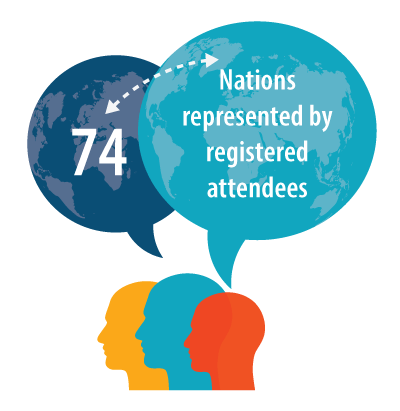
What are your plans going forward?
As for this specific research, a follow-up study is in development. I really wanted to test whether leading a person to think holistically can affect the view on immediate resignation to be not responsible enough. As for myself, I am preparing for doctoral program applications in hopes of continuing my research on culture and also other social psychological phenomena.

Working for the Future: Parentally Deprived Nigerian Children Have Enhanced Working Memory Ability
Tochukwu Ejiofor Nweze (University of Nigeria; University of Cambridge, England), Mary Basil Nwoke, Juliet Ifeoma Nwufo, Richard Ikechukwu Aniekwu (University of Nigeria), and Florian Lange (KU Leuven, Belgium)
Early parental deprivation such as that experienced by children who live in institutional homes or foster family homes has been associated with enduring impairment in cognitive abilities. Nweze and colleagues found, however, that deprived Nigerian children performed better than nondeprived children on measures of working memory, and similarly on other measures of executive function.
What drew you to this research?
I had taken a lecturing job at the University of Nigeria, Nsukka after the completion of my master’s degree at the Institute of Psychiatry, Psychology and Neuroscience, King’s College London. As part of my MSC project, I investigated inhibitory processing in children who experienced early deprivation using data from a large-scale longitudinal study of previously institutionalized Romanian children. Most of the existing knowledge and literature on this topic were built on data from Western samples and to the best of my knowledge, no such study had taken place in Africa. In order to give Nigeria and Africa a fair share of representation in the literature, along with my collaborators in Nigeria and Belgium, we began this research to understand how deprivation affects the cognitive ability of Nigerian children. In this study, we sampled our participants from Nigerian children currently living in institutions and foster homes to understand how they differ from a comparative non-deprived group on a battery of cognitive tasks.
What did the research reveal that you didn’t already know?
Our findings (published in the Journal of Child Psychology and Psychiatry) contravened most parts of the existing knowledge. While severe adverse rearing, such as a child’s institutionalization or placement in foster care, has been associated with deficits in almost all cognitive abilities, we actually found that parentally deprived children in Nigeria did not differ from nondeprived children in inhibition and set-shifting tasks. These results may cut across as a surprise to the Western scholars who are mostly used to the reading cognitive deficits associated with severe deprivation. Indeed, it’s not uncommon to find people from poor background in Nigeria compete fairly well with their more affluent counterparts in academic environment. However, for people from the deprived background in our study to outperform the non-deprived group in a laboratory working memory capacity task came as a surprise to us too. More importantly, the deprived children significantly performed better than the nondeprived children in the working memory task. Our research once more highlights the importance of studying the cultural differences in cognitive adaptation during and following periods of adversity, as that is the only way we can make a solid generalization about the consequences of adversity. We were happy that an elite psychology journal outlet like JCPP agreed to publish a novel finding that contradicted decades of existing knowledge. We hope that this study could go a long way to revolutionize the field as there are possibilities that some Western studies that found null results or enhanced performance in deprived groups were not adequately reported because of suspected lack of confidence in such study. We thus encourage researchers in the field to always report their null results, as that is the only way we can know the true predictive outcome following adversity.
What are your plans going forward?
Presently, I am a first-year PhD student in the MRC Cognition and Brain Sciences Unit, University of Cambridge, where I am using psychometric techniques and longitudinal datasets to understand the long-term consequences of adversity on mental health and cognition. Upon completion of this program, I intend to return to Nigeria where I will continue my research on this understudied deprived population. . I am also keen to establish important collaborations across the world with researchers and educationists of like minds. Equally, I hope that this finding and subsequent studies in Nigeria will not only inform a better understanding of cognitive adaptation in people living in chronic stress but will also help shape clinical interventions following adversity.
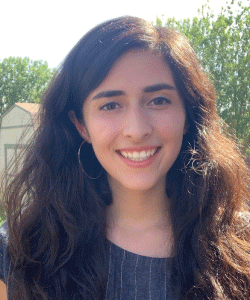
Monica Sofia Treviño, Kathryn E. Cherry, and Emily D. Gerstein (University of Missouri-St. Louis)
Socioemotional development (SED) in toddlerhood is strongly associated with later academic outcomes, but little is known about SED in young Latinx dual-language learners (DLLs), an understudied group in the U.S. that experiences disproportionately low academic achievement and high rates of poverty. Treviño and colleagues found that, for Latinx DLL toddlers, socioeconomic risk factors such as food and housing insecurity were associated with fewer socioemotional competencies and greater behavior problems, while having immigrant parents was associated with fewer socioemotional competencies but fewer behavior problems.
What drew you to this research?
I grew up in a rural area near the border of Mexico with a special education teacher as a mother. Thus, I became very familiar with the behavioral and emotional difficulties many children face early on in life and how it can impact the rest of their development. However, it wasn’t until I got to university that I realized the extent of the disparities experienced in my community and how different developmental trajectories looked for children with better access to care.
What did the research reveal that you didn’t already know?
Through my coursework, volunteer work, and research experiences, I learned how critical the first few years of life are and the role that various disadvantages can play. Dual-language learners (DLLs) were of particular interest to me due to their various intersecting identities. Being a DLL in the United States often comes with much cultural, social, and economic difficulty that can affect social, emotional, and cognitive trajectories. This research project aimed to focus on how socioeconomic risk impacts very early social emotional development (SED) in DLLs. The literature on SED in DLLs has primarily focused on preschool and school-aged children, thus this research was first and foremost informative in that it revealed how early these disparities can be seen. By age 3 in our sample, we saw that Latinx DLLs were already falling behind in SED compared to their ML their monolingual peers. Further, though this was already a primarily low-income sample, we still saw that DLLs were experiencing much higher socioeconomic risk. However, I thought that the most interesting finding was that of the role of food and housing insecurity. Despite dramatic income-to-needs ratios and high maternal risk, the biggest predictor of SED in DLLs was food and housing insecurity. This is one of the more easily remediable determinants of children’s outcomes.
What are your plans going forward?
I hope to continue to explore the social, emotional, and cognitive development of DLLs and other high-risk groups of children with the ultimate goal of informing both policy and interventions.
Psychological Science and Entrepreneurship Poster Award
Supported by the Ewing Marion Kauffman Foundation, the Psychological Science and Entrepreneurship Poster Award is intended to stimulate research in entrepreneurship, defined as the capacity and willingness to develop, organize, and manage a business venture, along with its risks, in the pursuit of opportunity and innovation. The award is open to APS members who are either current undergraduate or graduate students or early-career scholars (received their PhD in 2013 or more recently). The judges, APS Fellows Berrin Erdogan (Portland State University) and Kelly Shaver (College of Charleston), selected four winners for $1,000 awards in two categories, student scientist and early-career scientist.
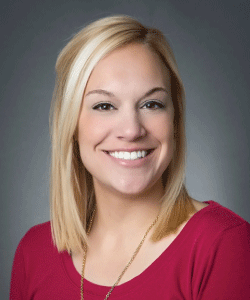
Using the Hexaco-100 to Measure Individual Entrepreneurial Orientation: Introducing the Hexaco-Ieo
Melanie Boudreaux (Nicholls State University) and Matt Howard (University of South Alabama)
The Individual Entrepreneurial Orientation (IEO) is a three-dimensional conceptualization of personality traits that influence entrepreneurial outcomes, such as risk-taking, innovativeness, and proactiveness. Boudreaux and colleagues found that the set of HEXACO-100 personality inventory items may be used as a measure of IEO dimensions, suggesting that entrepreneurial orientation may be linked to aspects of emotionality, extraversion, openness, and conscientiousness.
What drew you to this research?
Both of my parents are entrepreneurs; my mom owns an etiquette and customer service training company, and my father owns an oilfield services company. So, understanding and learning more about entrepreneurial personality really enticed me to pursue research in this area. Also, my mentor, Dr. Matt Howard, is also interested in entrepreneurial personality research. Thus, working with him on this project turned out to be a great research opportunity.
What did the research reveal that you didn’t already know?
This specific research truly excited me. We found support for the validity of the HEXACO-IEO scale, which measures individual entrepreneurial orientation using the HEXACO-100. Thus, we can take this new measure to reassess prior datasets that already exist and uncover novel relations of individual entrepreneurial orientation. This helps us unlock the doors to pursue further research on entrepreneurship and personality, and it allows psychologists to easily study entrepreneurship by reanalyzing their existing datasets that include the HEXACO-100.
What are your plans going forward?
I would like to focus on researching more on personality, entrepreneurship, and even social courage. I am an instructor at Nicholls State University where I teach human resource management courses, while working on my PhD at the University of South Alabama. Prior to this role, I was a human resource manager for over 8 years, so understanding more about employees and why they act the way they do, is interesting to me. I still participate in HR consulting, so ultimately, I would like to use my research to help assist HR departments and companies to better manage their people to increase productivity.
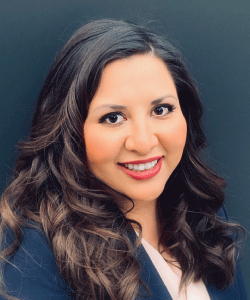
Entrepreneurial Tools: Resources and the Psychological Benefits
Gloria Ferron-Uribe and Luis Uribe (Utah Valley University)
Entrepreneurial school can bestow many advantages to alumni, including the fundamentals of accounting, marketing, and business management. Ferron-Uribe and Uribe found that graduates of a program in Mexico—the majority of whom went on to start a business and achieve middle to high income—viewed building the confidence necessary to market themselves and their products, and to bounce back from rejection, as the most valuable part of their education.
What drew you to this research?
As an entrepreneur myself, I wanted to learn more about what tools entrepreneurs need, as well as what makes an entrepreneur, and what fears and sacrifices they face. When our university allowed us to work on this research project abroad, we were all in. We were all grateful to have a hands-on opportunity from the beginning.
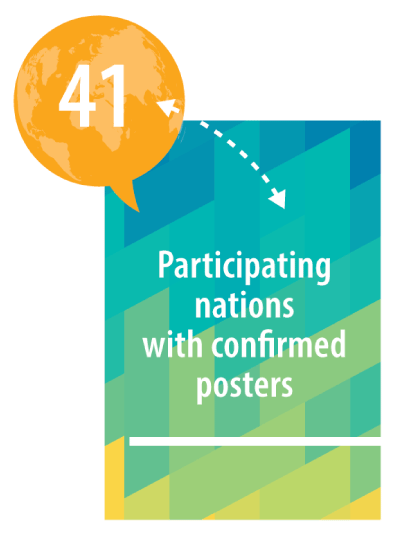
What did the research reveal that you didn’t already know?
What we found interesting was that educational tools help build the confidence in entrepreneurs that leads them to higher success, and not necessarily a strong financial background or entrepreneurial parents.
What are your plans going forward?
This is an ongoing project for us. We wish to be able to conduct this kind of research in multiple countries to contrast similarities and differences about entrepreneurs. We plan to keep building upon our research and disseminate our information through various platforms.
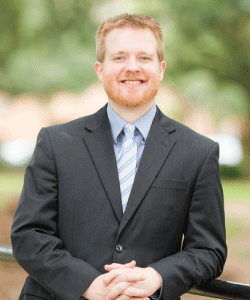
Matt Howard (University of South Alabama) and Melanie Boudreaux (Nicholls State University)
Entrepreneurial personality (EP) has been studied using a range of constructs associated with prior life experiences, individual differences, and entrepreneurial outcomes, among other factors. Howard and Boudreaux found that seven strongly related dimensions are commonly included in measures of EP: innovativeness, risk-taking, achievement, locus of control, proactiveness, self-efficacy, and autonomy. Furthermore, EP was predicted by education and training, but not by gender, age, or family background.
What drew you to this research?
From being a psychology graduate student at the Pennsylvania State University to a business professor at the University of South Alabama, I have always been interested in personality and its various conceptualizations. So, I was quite intrigued when I discovered that multiple conceptualizations of entrepreneurial personality exist, and I was even more intrigued when I discovered that these conceptualizations notably differed from each other—some didn’t even share any representative dimensions whatsoever! It seemed to be an area of research that could greatly benefit from a review and quantitative synthesis, which we provide in our meta-analysis.
What did the research reveal that you didn’t already know?
Most of our findings were surprising to me—which I hope speaks more to the interesting nature of our findings rather than to myself. Most conceptualizations of entrepreneurial personality include three or four dimensions. I knew that there were some differences among these conceptualizations, but I did not realize that there was enough heterogeneity to produce seven common dimensions: innovativeness, risk-taking, achievement, locus of control, proactiveness, self-efficacy, and autonomy. I will say, however, that I correctly predicted that these personality dimensions each have notable relations with entrepreneurial outcomes (e.g. intention, status, attitude, performance). Some colleagues initially doubted that personality would have much of an effect on these outcomes, but we supported that entrepreneurial success seems to be—in part—influenced by the entrepreneur’s personality.
What are your plans going forward?
I foresee an entire research stream based on our meta-analysis of entrepreneurial personality. Specifically, we identified that seven personality dimensions are often included within the scope of entrepreneurial personality, but most entrepreneurial personality frameworks only include three or four of these dimensions. Our next step will be to develop a measure that includes all seven dimensions, and then assess whether this broader conceptualization of entrepreneurial personality can predict relevant outcomes beyond prior conceptualizations. Also, I would love to teach a class on entrepreneurship and personality, which could include units on fostering or activating these personality traits in aspiring entrepreneurs. Too often we only focus on the knowledge required to be an entrepreneur, but students could also benefit from developing the “intangibles” that are often cited as characteristics of successful entrepreneurs—which I believe include these seven identified dimensions of personality.

Black Female Entrepreneurs Maintain Work-Life Boundaries and Balance
Amber S. Rouse and Alice F. Stuhlmacher (DePaul University)
Individuals turn to entrepreneurship for many reasons and have different approaches to managing their boundaries between their work and family lives. Rouse and Stuhlmacher found that black female entrepreneurs clustered into five distinct boundary management profiles. These profiles influenced reported family balance effectiveness and career satisfaction, but not family balance satisfaction and life satisfaction.
What drew you to this research?
I entered into graduate school with a desire to study and conduct research in the area of work and family. I have always been interested in understanding how work and family intersect. Once I began studying the topic, I noticed that very limited research exists that focused on the experiences of nontraditional workers (e.g., those who decide to pursue entrepreneurship) and ethnic minorities. So I decided to combine these two areas by focusing on how Black female entrepreneurs manage the boundaries between their work and family lives.
What did the research reveal that you didn’t already know?
One of the key findings of my research revealed that although Black female entrepreneurs in this sample reported being generally satisfied with their work-family balance, Black female entrepreneurs also cited significant barriers in obtaining necessary resources for their businesses including limited funding, training, and education on entrepreneurship. This suggests that more can and may need to be done to assist these women as they journey into entrepreneurship.
What are your plans going forward?
My plans are to continue pursuing research in this area to help broaden our understanding of the unique experiences of minority entrepreneurs. I would also like to offer training and consultation services to minority entrepreneurs to assist them in developing skills to effectively manage both their work and family lives.
NIDCR “Building Bridges” APS Travel Award
Offered jointly between APS and the National Institute of Dental and Craniofacial Research (NIDCR), the Building Bridges Award honors scientists who are conducting research at the intersection of psychological science and dental, oral, and craniofacial health. Learn more about the importance of psychological science in overcoming challenges in oral health at nidcr.nih.gov.
Replication and Extension of the Bi-Factor Structure of Repetitive Thinking
Ariana A. Castro, Howard Berenbaum (University of Illinois at Urbana-Champaign), and Juyoen Hur (Yonsei University, South Korea)
Repetitive thinking involves prolonged, recurrent thoughts, including rumination on past unpleasant events and reflective self-attentiveness. Castro and colleagues found that the Response Styles Questionnaire (RSQ) rumination scale may be used to measure reflection in a bi-factor model.
So Young Park, Myeon Jin Kim, and Young Woo Sohn (Yonsei University, South Korea)
Believing that you have a calling, a transcendent summons to pursue a certain line of work, can increase your sense of living a meaningful life. Individuals with high family identity, on the other hand, view their family roles as central to their fulfillment. Park and colleagues found that individuals with both a calling and a strong family identity experienced higher work-family enrichment than those with only one or the other.
The Efficacy of Executive Function Training for Reducing Childhood Anxiety
Nathaniel A. Shanok, Kelsey Meltzer, Colin Frank, Victoria Lugo, and Nancy A. Jones (Florida Atlantic University)
Societal anxiety levels in the U.S. have risen in recent years and have particularly intensified in youth demographics. Shanok and colleagues found that inhibitory control, which predicted self-reported anxiety and depression, may be improved through training.
The Robustness of Parameter Estimates in Nonnormal Latent Growth Curve Modeling
Lu Qin (Howard University) and Qianqian Pan (University of Hong Kong)
Nonnormal data is often due to the nonnormality in the measurement error, latent factors, or both. Qin and Pan found that semiparametric Bayesian estimates most accurately captured the variance between random intercept and random slope estimates.
Yun Xie, Shuo Zhang (New York University), APS Fellow Harriet Oster (New York University; Hunter College CUNY)
Mother-infant interactions during the first year of life are predictive of infants’ attachment security and later socioemotional development. Xie and colleagues found that infants with and without craniofacial anomalies showed similar emotional communicative abilities.





APS regularly opens certain online articles for discussion on our website. Effective February 2021, you must be a logged-in APS member to post comments. By posting a comment, you agree to our Community Guidelines and the display of your profile information, including your name and affiliation. Any opinions, findings, conclusions, or recommendations present in article comments are those of the writers and do not necessarily reflect the views of APS or the article’s author. For more information, please see our Community Guidelines.
Please login with your APS account to comment.